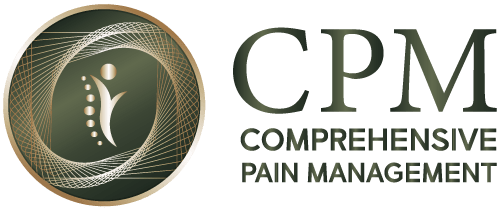8841 East Bell Road, Suite 101, Scottsdale, AZ 85260 | Rate: ★★★★★
Chronic Pain Treatments Scottsdale
Chronic pain lasts for a long time, often weeks or more. It can affect your joints, muscles, nerves, or bones. Unlike short-term pain, it usually doesn’t get better without treatment. That’s why it’s important to get the right care. At Comprehensive Pain Management in Scottsdale, we provide expert help to relieve your pain and improve your life.
Chronic Pain Symptoms
Chronic pain can show up in many ways. Here are some signs to look out for:
- Ongoing pain in your muscles, joints, or bones
- Swelling or feeling stiff
- Hard to move or bend
- Numbness or tingling
- Trouble sleeping because of the pain
- Feeling tired all the time
- Hard to do everyday things
If you have any of these problems, you need to see our pain specialists in Scottsdale to find the right treatment.
Chronic Pain Treatments in Scottsdale at Our Clinic
At our advanced clinic, we offer a range of modern treatments, including:
Physical Therapy
Gentle stretches and exercises to build strength and improve movement.
Regenerative Medicine
Treatments like PRP that use your body’s own healing powers to repair damaged tissues.
Headache Treatments
Options to reduce how often you get headaches and how bad they feel.
Low Back Pain Therapy
Care designed to ease pain in your lower back and help you move better.
Fibromyalgia Treatment
Full support to manage symptoms and improve your daily comfort.
Car Accident Injury Care
Pain relief and healing support after vehicle accidents.
Epidural Steroid Injections
Targeted shots that lower inflammation and pain right at the source.
Radiofrequency Ablation
A treatment that gently heats and stops pain signals from certain nerves.
Sciatica Care
Help for sharp or burning leg pain caused by nerve pressure.
Chronic Pain Causes
Chronic pain can be caused by many things, such as:
- Arthritis
- Nerve damage
- Past injuries that didn’t heal fully
- Fibromyalgia
- Autoimmune diseases
- Long-term infections
- Poor posture or repetitive motions
- Stress or emotional pressure
Common Types of Chronic Pain in Scottsdale
Here are some of the most common pain problems we treat in Scottsdale:
- Neck Pain
- Knee Pain
- Nerve Pain
- Back and Lower Back Pain
- Fibromyalgia
- Arm Pain
- Whiplash
- Herniated or Bulging Disk
- Foot Pain
- Injuries from Car Accidents
- Shoulder Pain / Frozen Shoulder
- Sciatic Nerve Pain
- Spinal Stenosis
- Sports Injuries
- Leg Pain
- Numbness or Tingling in Arms/Legs
- Full Body Pain
- Head Pain
- Joint Pain
Common Medications for Chronic Pain Treatment
Medication Type | Used For |
NSAIDs (like ibuprofen) | Muscle pain, arthritis, back pain |
Antidepressants | Fibromyalgia, nerve pain |
Anticonvulsants | Nerve pain, fibromyalgia |
Topical Creams | Muscle or joint pain |
Opioids (short-term only) | Severe pain (with close doctor care) |
Chronic Pain Specialists Near Me in Scottsdale
Looking for expert care? Comprehensive Pain Management in Scottsdale has skilled doctors like Dr. James KellerShabrokh, along with experienced nurse practitioners, who offer one-on-one treatment plans to help you take back your life from pain.
Contact us today to schedule your visit and start your path to feeling better.
FAQs about Chronic Pain in Scottsdale
What’s the most painful chronic condition?
CRPS (Complex Regional Pain Syndrome) and trigeminal neuralgia are considered some of the most painful.
What’s the best treatment for chronic pain?
It depends on your condition. A full exam helps find the best treatment plan.
How do I manage unbearable pain?
A specialist can help with medication, therapies, or other treatments that target your specific pain.
What are the 4 P’s of chronic pain?
They stand for: Pacing, Positioning, Planning, and Prioritizing—key strategies for managing pain.
What’s the strongest painkiller for chronic pain?
Stronger opioids may be used, but only under a doctor’s close watch.
Is there a non-addictive new painkiller?
Yes, new options like Naltrexone (in low doses) and some nerve-blocking meds may help without addiction risks.
Dr. James KellerShabrokh
Dr. James KellerShabrokh is a board-certified specialist in Physical Medicine and Rehabilitation, focusing on spine, joint, muscle, and nerve injuries. He combines rehabilitative care, minimally invasive procedures, and preventive strategies to restore function, improve mobility, and provide long-term pain relief.
